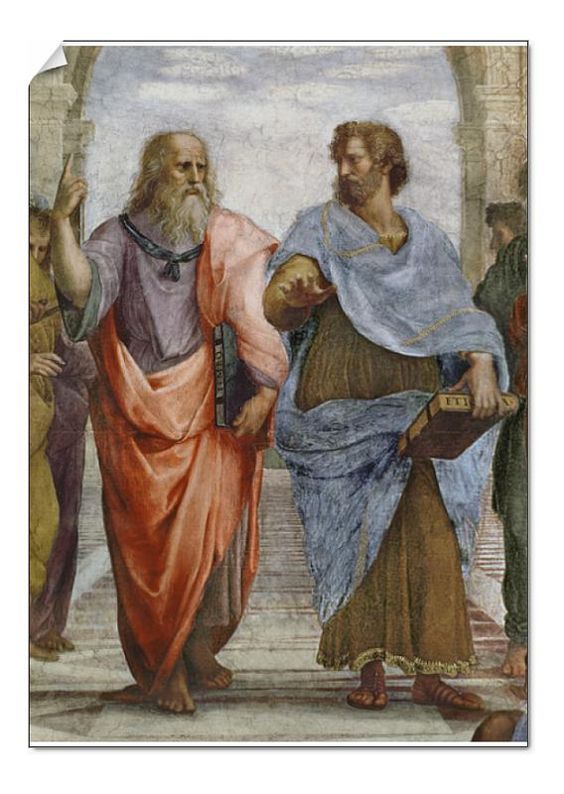Perspectives on learning and instruction. Intro.
This is the intro to the module perspectives on learning an instruction in which we are going to explore three different theoretical perspectives on the way learning and instruction have been studied. But before we start to do that I would like to zoom in on a very old beard piece of art a fresco made by Raphael and shown in the vatican museums in Rome. Here you see a very famous school of athens in which I myself very much would like to have been a teacher because all the famous philosophers are there. You see Diogenes sitting there on the stairs but more importantly we will zoom in on two very famous philosophers Plato and Aristotle. Plato on the left is pointing upwards with this digit finger, and Aristotle is is pointing in front of him to the world around him.

Figure 1: Plato and Aristotle
Why these two philosophers here at the start of this module on learning and instruction? Well they are a source of inspiration for many philosophers to come many learning theorists to come.
Plato is pointing upwards because he considers the world of pure ideas somewhere up in the heavens as the source of our knowledge. The world of pure ideas has in store all the knowledge we as human beings can develop. And when we are born as human beings we are already gifted with this knowledge. Basically it's its inborn all we have to do is just recollect what has been stored in our mind already. All learning is but three collection as Plato phrases.
Now the view of Aristotle is completely opposite because he considers the world around us as the source of our knowledge. So we have to do we have to act and to explore the world to experience in order to collect knowledge to learn. So learning is a matter of experiencing the world around us.
Concrete experience is the basis of all learning and knowledge acquisition. So these two positions are completely opposite and they have inspired in fact a lot of theorists. Therefore I would like to draw your attention to the two, Both of these folds.
Famous philosophers just focus on a modern philosopher called Noam Chomsky a famous linguist. His idea is that people are born with what equals a language acquisition device. A piece of equipment which enables us to develop language skills in develop the use of language. Now this is basically such an inborn thing such an inborn device which is part Plato's idea of everything has been in born and just has to be activated.
An example of such a failing activation is basically the the story of non foul survive the wild child which was discovered in 1800 by parisien doctor who tried to raise him and to try to teach him language skills. Because the the boy had passed the particular age the critical period in which he would have been able to develop these skills without hearing the knowledge in the boots ready was raised therefore he could not.
You know later on developed this mastery of of language anymore and very nice film made by 434 so if you have to challenge you should try to see it so this is the the plate of sight and perhaps you can also give one example of a philosopher of a am a philosopher who actually adults the Aristotelian point of view.
John Dewey famous American pedagogue and philosopher who emphasized that experience is the base of our knowledge we learn by doing not by observing. You cannot learn to play football by just observing football matches. That the spectator position as do be called it is not the proper place to learn therefore we have to actually have to experience and in the course of this acting and experiencing.
We will gradually develop language learning and impossible knowledge of course. So these two relatively modern philosophers and theories do remind us of the old positions of Plato never stuff on. Therefore I would like to start with then we will return to these positions later on in this module.
Now we can just have a look at what we are going to do in the module. We are going to subsequently explore behaviorism, cognitivism and constructivism as prosper theoretical perspectives on learning and instruction and eventually we will discuss a few research methods, which are used by researchers in this particular domain.